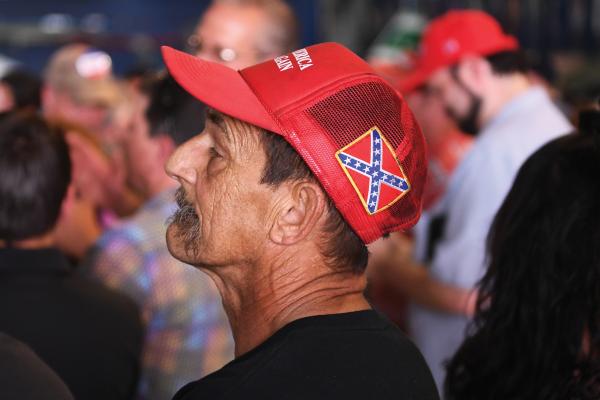My grandparents supported Trump.
Their simple white house sits on the sprawling plateau between Joplin and Springfield, Mo., just around a bend in the country road where their church stands. It’s not more than a mile from the old farm, where my grandpa raised chickens and tilled the soil until his body would no longer allow it, as the man who owned the land had promised he could. To me, he’s always been Papa, but in that remote part of the Ozarks he’s known as the “chicken man,” a name in which he delights.
Papa has never been a very good businessperson. When at first he went to sell the fruits of his labor, he would put out a can and ask people to pay what they could. Eventually he fixed prices to things, but when the woman who was raising her grandchildren alone would show up, she knew that whatever she could spare was enough. “Don’t try to outgive the Lord, because you can’t,” Papa told me on countless occasions. In order to make ends meet, he used to work at the nearby quarry. Now he cares for the church building next door and, in exchange, the congregation lets him and grandma live in the house.
When I was in high school, I spent part of a summer on the farm, where I learned all sorts of things firsthand: that picking okra is sticky work, that spiders have an unfortunate affinity for tomato plants, and that unvarnished racism is still acceptable in certain quarters. It was the first and only time I remember meeting my great-grandma. She brought her new husband, Joe, with her, and at one point in the conversation he made clear he was not happy about the “Oreo cookie” families moving into the area. Still to this day, if you bring Joe up in the presence of my grandma, she’ll tell you she never truly accepted her mother’s last beau. He was too “mean.”
Read the Full Article

